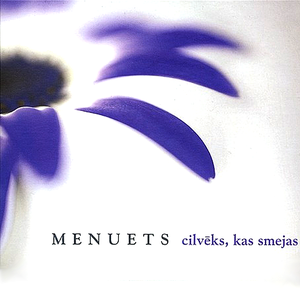The original lineup consisted of Andris Kronbergs, Adrians Kukuvass, Juris Sējāns, Leons Sējāns, Raimonds Bartašēvics and Alberts Bartašēvics. In the early 70's the band was joined by flautist Baiba Jēgere and vocalist Inese Pabērza. This classic lineup in the coming years was augmented by various other musicians.
Menuets ended active recording and touring in 1987. They have played some shows between 1992 and 2008.
In 2014, the band announced Menuets 45th anniversary tour.
Siena
Menuets Lyrics
Jump to: Overall Meaning ↴ Line by Line Meaning ↴
Vai otrā pusē ir diena?
Vai otrā pusē ir diena?
Es jau zinu, ka diena.
Tu jau teici, ka diena.
Saki man, bieza siena, saki man!
Kāpēc tu klusē, siena?
Bez manis nav te neviena,
Bez manis nav te neviena -
Tikai nakts.
Saki man biežāk, siena!
Saki man biežāk, siena,
Ka otrā pusē ir diena,
Ka tu esi tikai viena.
The lyrics to Menuets' song Siena are in Latvian and the song explores the theme of separation and longing. The first verse starts with the singer addressing their lover, asking if it is day on the other side of the wall. The singer already knows that it is indeed day but they ask anyway, perhaps as a way to make conversation or avoid the inevitable topic of their separation. The second verse continues with the singer addressing the wall again, asking why it is silent. They know that without them, there is no one there, just the night.
In the chorus, the singer implores the wall to speak to them more frequently, to tell them that it is day on the other side and that their lover is alone. This emphasizes the singer's loneliness and desire for connection, even if it is just from an inanimate object.
Line by Line Meaning
Saki man, bieza siena, saki man!
The singer is urging someone or something called 'siena' to speak up and communicate with them.
Vai otrā pusē ir diena?
The singer is asking whether or not it is daytime on the other side of wherever they are or whatever they are referring to.
Es jau zinu, ka diena.
The singer already knows that it is daytime, despite not being able to physically see it on their side of the 'siena'.
Tu jau teici, ka diena.
The artist is reminding 'siena' that they already confirmed that it is daytime on the other side.
Kāpēc tu klusē, siena?
The artist is questioning why 'siena' is being silent and not responding to them.
Bez manis nav te neviena, Bez manis nav te neviena - Tikai nakts.
The singer is suggesting that without them, there is nobody else there and only darkness or night exists.
Saki man biežāk, siena!
The singer is urging 'siena' to speak more frequently with them.
Ka otrā pusē ir diena, Ka tu esi tikai viena.
The artist is telling 'siena' what to say - that it is daytime on the other side and that 'siena' is alone.
Writer(s): Imants Kalniņš, Viktors Kalniņš
Contributed by Eva O. Suggest a correction in the comments below.
